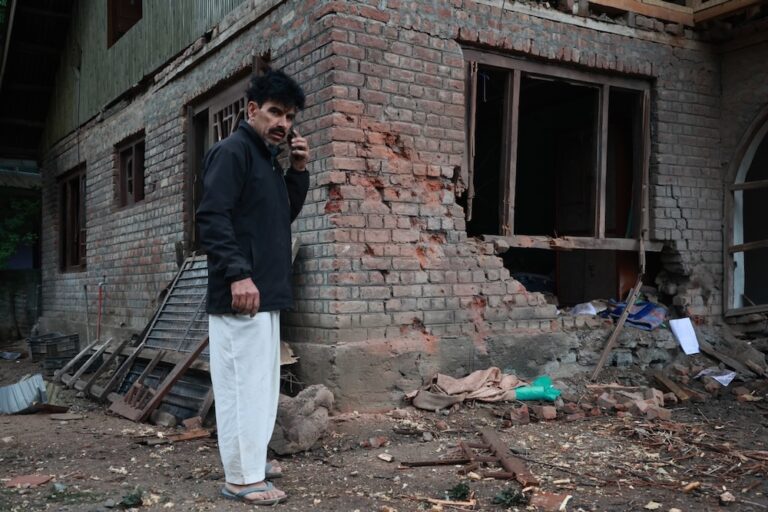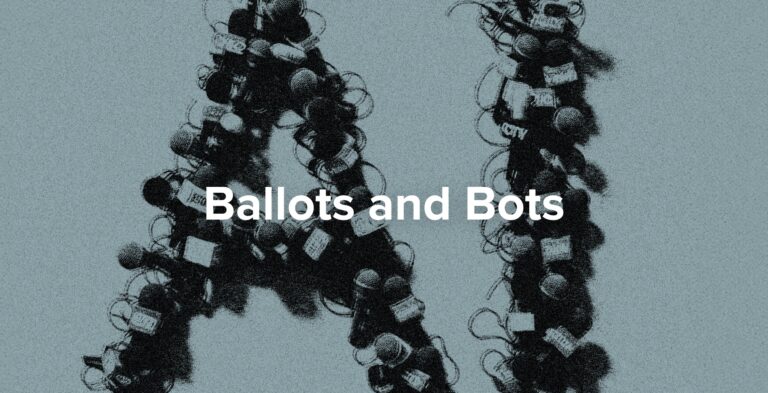In the past few weeks, journalists and netizens have been physically attacked, prevented from covering military activity and arrested for disseminating information online.
(RSF/IFEX) – 04.19. 2012 – Reporters Without Borders is concerned by a steady decline in freedom of information in India since the start of the year. Journalists and Internet users are often the victims of violence and censorship. In the past few weeks, journalists and netizens have been physically attacked, prevented from covering military activity and arrested for disseminating information online.
At the same time, the government has rejected a plan for protecting journalists that was proposed at UNESCO, courts have tried to increase restrictions on media coverage of judicial proceedings and two ongoing court cases about online content could increase the responsibility placed on Internet companies.
“A series of moves by various branches of the state have threatened and undermined freedom of information,” Reporters Without Borders said. “Both federal and local authorities keep taking repressive decisions. We urge the government to take systematic account of the need to protect journalists and their ability to work freely.
“We also call on the government to abandon any thought of generalized Internet control and surveillance and to rescind the Information Technology regulations adopted last year, known as the IT Rules 2011, as they jeopardize online free expression. At the same time the relevant judicial authorities must drop proceedings against several Internet companies in connection with ‘offensive’ content.
“We have until now refrained from commenting on journalist Syed Kazmi’s detention for his alleged role in the bombing of an Israeli diplomat’s car. But, after his recent statements, we are concerned about the possibility that he is being mistreated and we call for a thorough investigation into the basis of the allegations against him. The justice system has a duty to ensure that he was not arrested simply because his political views do not meet with approval.
“The lack of transparency in the Kazmi investigation, at a time when the supreme court, at the start of April, talked of a charter for regulating media coverage of its activities, is unacceptable. The media’s right of access to information, and the public’s right of access via the media, cannot be questioned.
“The Indian media need the authorities to guarantee their rights and safety rather than concern themselves with the media’s responsibilities, which are already sufficiently regulated. In this regard, India’s rejection of the UNESCO action plan for the safety of journalists is regrettable and reflects the government’s flagrant lack of concern for journalism and the media.”
Threats and violence
In one of the latest cases of violence, Kamal Shukla, the local bureau chief of the Hindi-language daily Rajasthan Patrika, was attacked in his office in Kanker, in the eastern state of Chhattisgarh, on 11 April by political activist Anupam Awasthi.
(. . .)
The attack came three weeks after India, along with Pakistan and Brazil, rejected a proposed action plan on safety for journalists and the problem of impunity at a UNESCO meeting in Paris on 23-24 March. Discussed by members of the Intergovernmental Council of the International Programme for Development of Communication, it included concrete recommendations for improving the safety of media personnel and asked members countries to adopt legal measures for the prosecution of those responsible for murders of journalists.
Member countries were also invited to present reports on the progress that had been made in investigations into murders of journalists that took place from 2006 to 2009.
Access to information obstructed
Although India did not refuse to report on the status of ongoing investigations at the UNESCO conference, transparency does not seem to have been respected in the investigation into detained journalist Syed Mohammed Ahmad Kazmi’s alleged complicity in the 13 February bombing of Israeli defence attaché Alon Yehoshua’s car in New Delhi, in which his wife, fellow Israeli diplomat Tal Yehoshua, was seriously injured.
(. . .)
Netizen harassed for posting cartoon on Facebook
Ambikesh Mahapatra, a chemistry professor at Jadavpur University in Kolkata, the capital of the eastern state of West Bengal, spent the night of 12 April in detention for emailing and posting a cartoon of West Bengal’s female chief minister Mamata Banerjee, the founder of the All India Trinamool Congress party (TMC), on Facebook. He was arrested when he tried to report an attack by TMC supporters.
The cartoon alluded to TMC member Dinesh Trivedi’s “forced” resignation as India’s railway minister after announcing a fare increase. According to the Jagran Post, Trivedi had to resign because Banerjee wrote to Prime Minister Manmohan Singh requesting his replacement as railway minister by another TMC leader, Mukul Roy.
(. . .)
Several Internet companies dropped from civil suit
On 12 April, New Delhi judge Praveen Singh ordered that Google India, Exbii, IMC India, My Lot, Shyni Blog, Topix, Zombie Time, Boardreader and several other Internet companies be excluded from a civil suit that a private individual brought against a total of 22 Internet companies because of “offensive” content.
As Yahoo! and Microsoft were previously excluded, only six companies – Facebook (India and US), Google Inc, Orkut, YouTube and Blogspot – are still targeted by the suit. The judge accepted Google India’s argument that it is just a software development company that has no influence over the content posted on Google’s various platforms.
Two cases, one civil and one criminal, were brought by private individuals against Internet companies over allegedly offensive content at the end of last year. Reporters Without Borders urges the Indians courts not to hold Internet companies responsible for the content that third parties post on their platforms.
India was added to the countries “under surveillance” in the “Enemies of the Internet” report that Reporters Without Borders issued last month.


